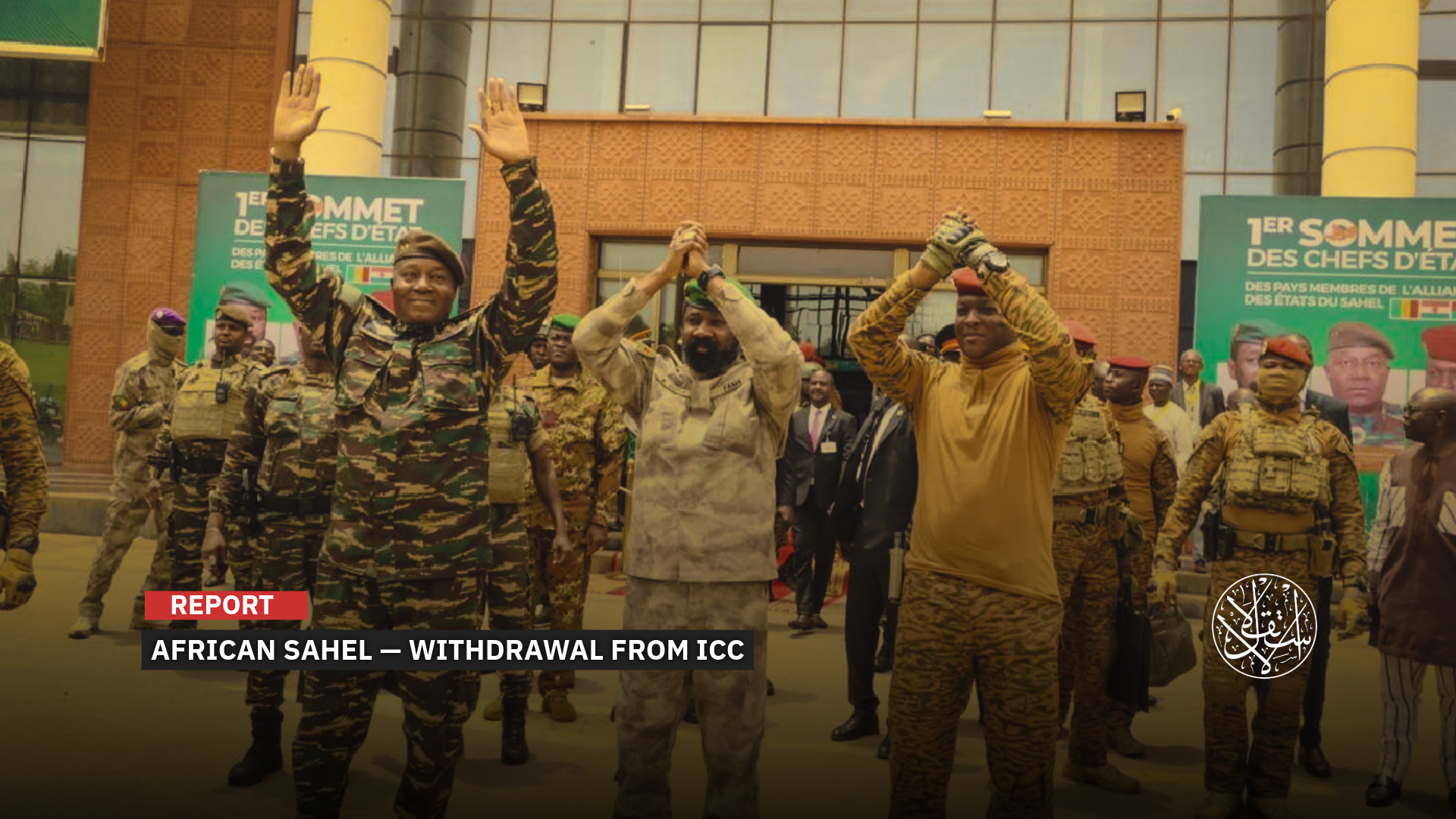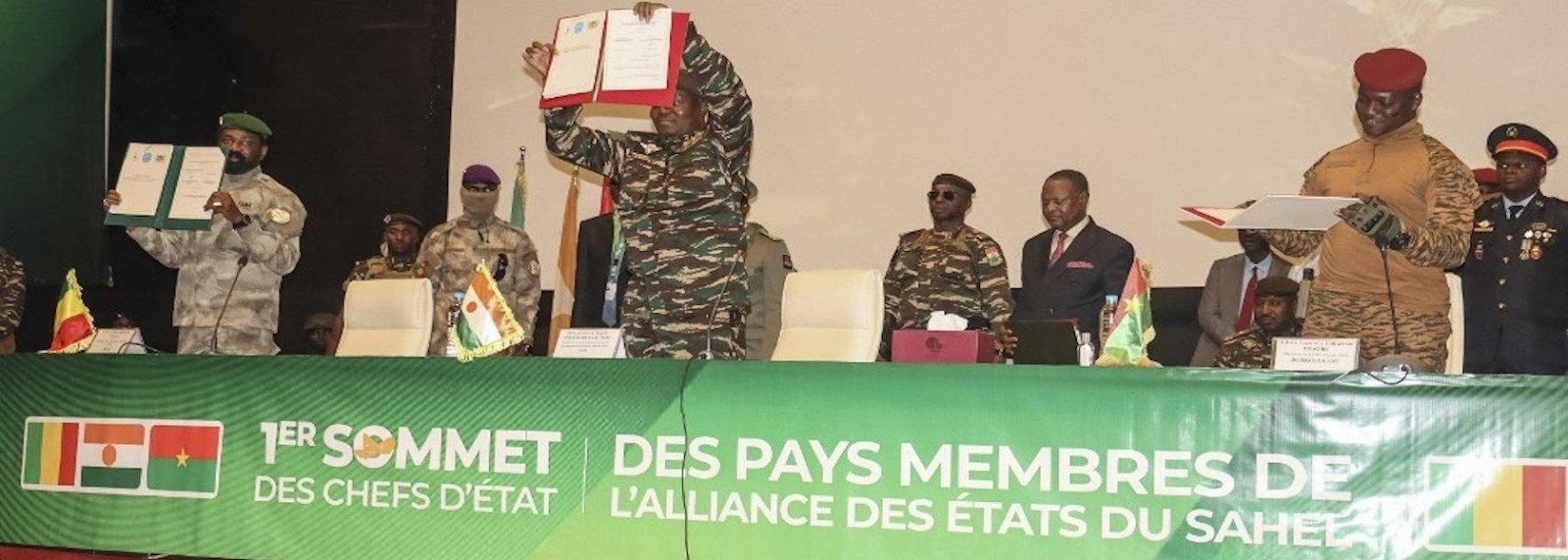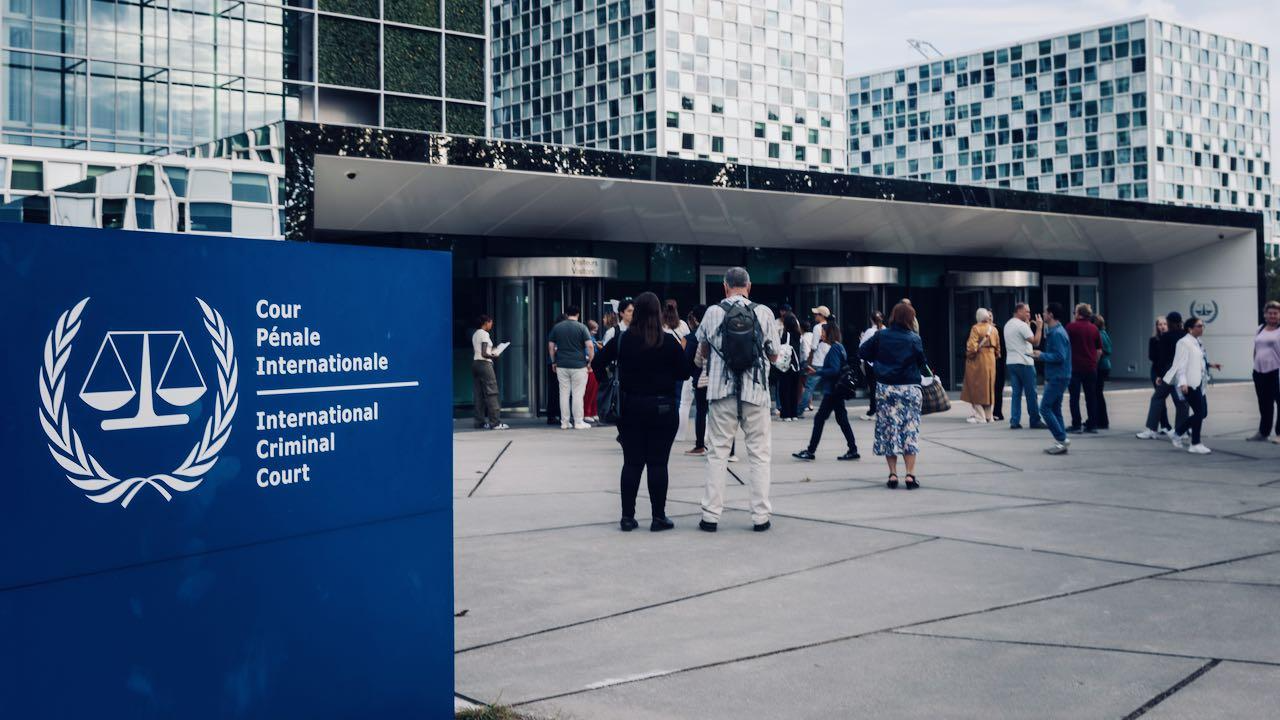Burkina Faso, Mali, and Niger Announce Immediate Withdrawal from the ICC: What’s Behind the Move?

The Sahel countries are set to establish a regional criminal court and integration mechanisms to promote justice and peace.
The Sahel nations are moving forward with coordinated steps to shape a unified stance toward the international system and major players on the African continent, as well as to define their foreign policy approach.
On September 22, 2025, Burkina Faso, Mali, and Niger announced their withdrawal from the International Criminal Court (ICC), calling the institution a tool of colonial oppression in the hands of imperial powers.
The three countries, all under military rule following a series of coups in the Sahel between 2020 and 2023, issued a joint statement declaring the move effective immediately as part of efforts to fully assert national sovereignty.
The statement added that the ICC has failed to address war crimes, crimes against humanity, genocide, and acts of aggression or hold perpetrators accountable.
The Sahel nations also indicated plans to establish a regional criminal court and adopt domestic mechanisms aimed at strengthening justice and peace across the region.
Strategic Positioning
The Sahel countries are moving to establish a regional criminal court and integration mechanisms aimed at promoting justice and peace while maintaining international cooperation on human rights through other channels, according to the Facebook page “Mali Live in Arabic” on September 23, 2025.
The page noted that in July 2025, Burkina Faso, Mali, and Niger announced plans to create a human rights and criminal court based in Bamako as part of a broader effort to strengthen regional justice institutions.
This move comes as the Sahel countries undergo a strategic repositioning away from traditional international bodies and toward new partnerships with regional and global powers, including Russia, which has itself faced criticism from the International Criminal Court.
Observers say the initiative reflects the three countries’ desire to assert greater political and legal independence while responding to what they perceive as double standards in the ICC’s operations, which have long faced complaints from African nations for focusing disproportionately on the continent’s cases.
Multiple Grievances
Despite their announcement of an immediate withdrawal, the legal process requires a full year after formally submitting the request to the United Nations Secretary-General before the decision takes effect.
The International Criminal Court, based in The Hague, Netherlands, was established in 2002 as the permanent international body authorized to prosecute the gravest crimes when states are unable or unwilling to do so.
It has 125 member states, though major powers such as the United States, Russia, China, Myanmar, and the Israeli Occupation are not members.
As the first permanent institution of international criminal justice, the ICC has faced repeated criticism, particularly in Africa, where it is often seen as disproportionately targeting African leaders.
The court sentenced Congolese warlord Bosco Ntaganda to 30 years in prison for war crimes and imposed a 10-year sentence on Malian jihadist leader al-Hassan Ag Abdoul Aziz for the same charges.
At the same time, it acquitted former Ivorian President Laurent Gbagbo, his aide Charles Ble Goude, and former Congolese Vice President Jean-Pierre Bemba.
In 2016, Gambia, South Africa, and Burundi announced intentions to withdraw from the court, though the first two later reversed their decisions.
In September 2025, the ICC accused former Philippine President Rodrigo Duterte of crimes against humanity, and he was arrested in March and transferred to the court for trial.

Human Rights Condemnation
International rights groups have strongly condemned the announcements by Burkina Faso, Mali, and Niger that they are withdrawing from the International Criminal Court, calling the move a serious setback for accountability and a blow to decades of African leadership in fighting impunity.
The statement came from the Global Initiative Against Transnational Organized Crime, which includes the International Federation for Human Rights, the Coalition for the ICC, Redress, Trial International, and the Women’s Initiatives for Gender Justice.
According to Northern Africa News on September 27, 2025, the groups said the withdrawals weaken both the ICC and the global project of international justice at a time when violence against civilians is rising. They urged the three countries to reaffirm their commitment to the Rome Statute, noting that maintaining the court as a last resort for justice is now more urgent than ever.
Amnesty International called the withdrawals a serious regression in the fight against impunity in the Sahel and a threat to victims’ rights to justice. “The announcements by Burkina Faso, Mali and Niger that they will withdraw from the ICC are an affront to victims and survivors of the most serious crimes and to all people fighting against impunity in these countries and worldwide,” said Marceau Sivieude, Amnesty International’s Regional Director for West and Central Africa.
“Withdrawing from the Rome Statute would not have any impact on the ongoing ICC investigation in Mali or on the state’s continuing obligations towards the Court.”
“However, once any withdrawal takes effect, it would significantly harm the prospect of victims and survivors of future war crimes, crimes against humanity, or genocide from these Sahel countries from being able to pursue justice at the ICC if they cannot find justice at home,” he added.
“If these three countries have genuine concerns about the selectivity of the ICC, these should be raised as ICC member states through dialogue and constructive engagement within the Assembly of States Parties. Withdrawals will not serve to address concerns; they will only remove the prospect of justice for victims and the protections they are provided by the Rome Statute.”
“All ICC member states must urgently call on Mali, Burkina Faso, and Niger to urgently reconsider their stated decisions to withdraw from the Rome Statute,” according to Sivieude.
The International Federation for Human Rights echoed these concerns on September 26, noting that withdrawing from the ICC weakens protections for victims, for whom the court often represents the last hope for justice. The move leaves victims in Burkina Faso, Mali, and Niger with no recourse for the most serious human rights violations they continue to endure.
Drissa Traore, secretary general of the federation, said the countries’ judicial systems remain incapable of delivering justice or reparations due to lack of political will and investigative capacity. He added that the withdrawals have drawn widespread criticism because they weaken global efforts against impunity.
Despite past criticisms of the ICC for perceived selectivity and a disproportionate focus on Africa, the court has gradually expanded its scope to include cases in Afghanistan, Bangladesh/Myanmar, Palestine, Ukraine, Venezuela, Libya, and the Philippines. Recent arrests of Libyan suspects and former Philippine President Rodrigo Duterte show that no region or senior official is beyond accountability.
Alix Vuillemin, Executive Director of Women’s Initiatives for Gender Justice, urged member states to reaffirm their commitment to the court, uphold victims’ rights, and fight impunity worldwide. She said that as attacks on the court increase, states must move toward universality, not retreat. Ignoring this now will only reinforce impunity.
Vuillemin stressed that the ICC complements, rather than replaces, other mechanisms such as fact-finding missions and transitional justice initiatives, which are essential for lasting peace. She also noted that the Rome Statute establishes core principles of international justice, including no immunity for heads of state, integration with national jurisdictions, and the rights of victims to participate and seek reparations. She warned that withdrawing from the statute threatens these protections and risks undoing decades of progress in setting global standards against impunity.

Mounting Frustration
To understand the background of the three countries’ decision, Mamadou Diara, a political science professor at University of Bamako 2, said the move reflects deep frustration among Sahel populations over what they see as Western interference in their internal affairs.
Diara told Al-Estiklal that military governments view the ICC as an added burden, exposing the state to legal accountability at a time when it struggles to maintain security and stability. He warned that the lack of strong local alternatives leaves victims without justice and called for independent national judicial bodies, investigations that include all parties, including government forces, and full civil society participation as a critical safeguard.
At the international level, Diara said the withdrawals could lead to political isolation and reduced aid but might also serve as a bargaining tool to reshape these countries’ relations with the global community. He noted that while the move reflects a legitimate sovereign impulse, it carries serious risks if not paired with domestic judicial reforms that prioritize victims.
Meanwhile, Miriam Cohen, an international law professor at the University of Montreal, said claims that the ICC focuses exclusively on Africa are unfounded. She told Canadian La Presse on September 29, 2025, that many ongoing ICC investigations and cases are outside Africa.
Cohen cited recent ICC actions, including arrest warrants for Vladimir Putin and other Russian officials over the war in Ukraine, Israeli Prime Minister Benjamin Netanyahu, his former War Minister Yoav Gallant, and former Hamas leader Mohammed Deif. She also referenced charges against former Philippine President Rodrigo Duterte, aged 80, for crimes against humanity linked to 76 killings in his war on drugs.
Cohen argued that unilateral withdrawal by Burkina Faso, Mali, and Niger is not the best way to protest what they see as a selective justice system and will not resolve these concerns. She suggested that legitimate issues could be addressed as member states through dialogue within the Assembly of States Parties.
She added that the withdrawal is alarming in a context where international institutions face severe undermining by member states increasingly ignoring their responsibilities, sending the wrong message. Cohen warned that this significant step back could encourage impunity and weaken prospects for justice in war crimes cases in the affected regions. She further cautioned that the ripple effects could extend beyond the Sahel, impacting the global justice landscape.
Sources
- Three African Countries Withdraw from the International Criminal Court [Arabic]
- Sahel States’ Exit from the International Criminal Court: A Setback for Victims and Justice [Arabic]
- Rights Groups Condemn Sahel States’ Withdrawal from the ICC [Arabic]
- Burkina Faso/Mali/Niger: Announcements of ICC withdrawal a serious backwards step in fight against impunity in the Sahel region and worldwide











